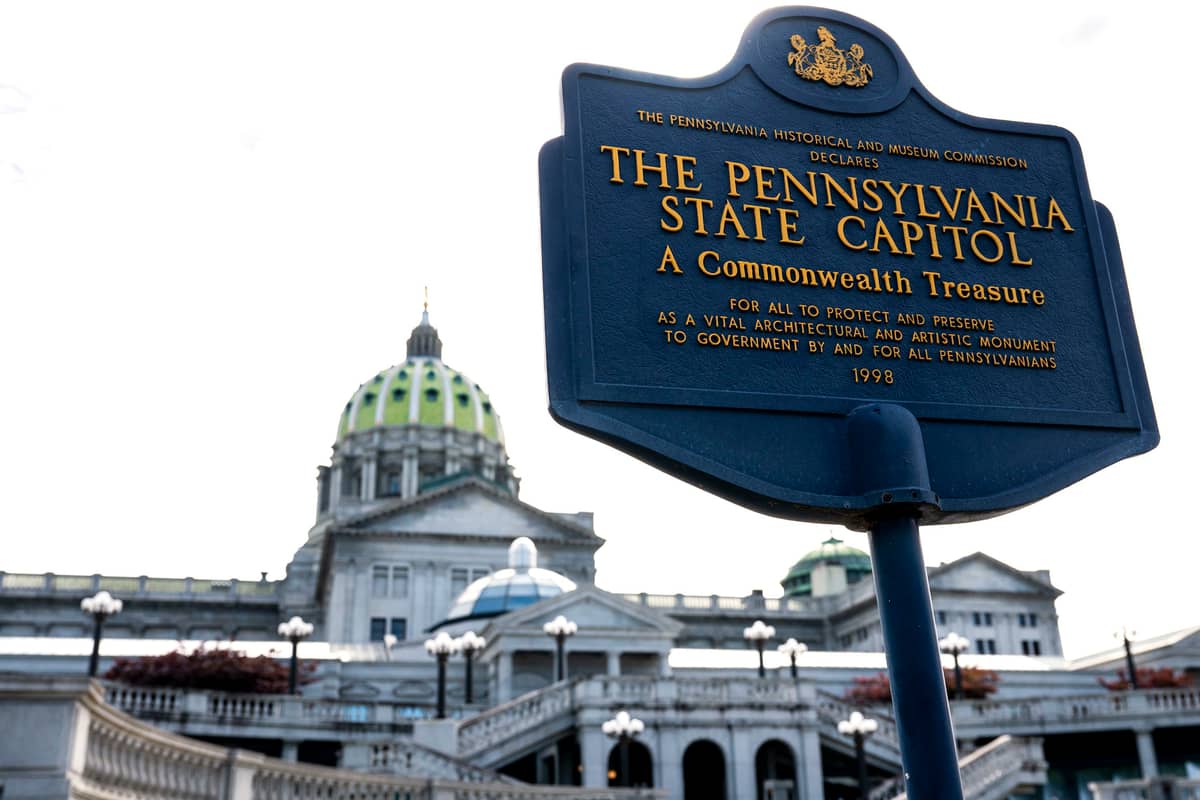This article is shared with LebTown by content partner Spotlight PA.
By Angela Couloumbis of Spotlight PA
HARRISBURG — As lawmakers gathered in Harrisburg this week for another round of budget hearings, both legislative chambers got the chance to question top officials from Pennsylvania’s Department of State.
The department is best known for its oversight of elections. But it also plays a key part in an area long neglected by the legislature: the role of money and lobbying in politics and policy-making.
Both are large, time-consuming undertakings for the department, which has a proposed budget of $35.2 million. Annual budget hearings have long been a forum for lawmakers to put administration officials on the spot about what they believe are the most pressing and important issues of the day.
But during the five hours that legislators questioned Department of State officials, they inquired about the agency’s work on campaign finance and lobbying just twice.
For those who follow the Capitol closely, it came as little surprise.
Republican legislative leaders have not substantively discussed improving Pennsylvania’s campaign finance and lobbying disclosure rules for more than a decade, despite calls by good-government advocates and others for changes.
As part of its work, the Department of State releases campaign finance reports for statewide, legislative, and some judicial candidates, as well as political committees registered in Pennsylvania. It also tracks registration forms for lobbyists, and posts on its website what lobbyists report spending every quarter on influencing policy. The agency also has some powers to enforce those disclosures, although advocates think they are too limited.
When it comes to money in politics, Pennsylvania has some of the laxest laws in the country. It places no caps on how much money people can donate to politicians and their political committees. During the 2022 election, five-figure, and even six-figure donations, routinely poured into the coffers of Democrat Josh Shapiro’s campaign, helping to make the contest the state’s most expensive governor’s race on record.
State law also contains no explicit ban on using campaign funds for personal use, which over the years has allowed elected officials to tap campaign cash to pay for lavish dinners, trips, sporting tickets, and other perks.
Senate Minority Leader Jay Costa (D., Allegheny) has repeatedly introduced a bill that would place monetary limits on campaign donations, ban candidates from using donor dollars for personal benefit, and require more transparency on how candidates spend their money.
He’s introduced it in every legislative session for the past 12 years. And in every one of those sessions, the bill was referred to a committee but never brought up for a vote by the Republican chair.
Why the inaction?
“I think the General Assembly likes the status quo,” Costa said in an interview this week.
“But folks have to recognize that we have individuals with enormous wealth that are working in this space to effect significant policy change, and investing literally millions of dollars in races — even state Senate races — to build a coalition of folks who support their cause,” said Costa. “Regular folks can’t participate in the same way.”
The state’s current lobbying disclosure law improved upon what existed before the legislature rewrote it in 2006. But it lags laws in other states.
Lobbyists here have to disclose their clients, as well as how much they spend on lobbying — but they don’t have to reveal who they spend the money on, or for what purpose. If a lobbyist treated a lawmaker to dinner on the eve of a key vote on an issue important to a client, the public would never know.
Several lobbying firms in Pennsylvania moonlight as political consultants, effectively allowing them to elect officials that they can then lobby on behalf of clients.
Last legislative session, the General Assembly’s top two Republicans supported the toughest proposed reforms to the lobbying law since it was enacted. Among other changes, one proposal would have banned the practice of lobbying firms also operating political consulting arms.
Despite the high-profile support, the proposals did not receive a floor vote.
Jason Gottesman, spokesperson for Pennsylvania House Republicans, said his caucus intends to once again advance proposals to toughen lobbying laws, among other government accountability efforts.
Less clear is whether the outcome will be any different.
Beth Rementer, spokesperson for Democrats who now control the state House for the first time in more than a decade, called campaign finance and lobbying reform “a priority.” She said the caucus views them as part of an effort to “defend democracy and ensure continued free and fair elections in Pennsylvania.”
“As the majority, we will take into serious consideration legislation — Democrat or Republican sponsored — that makes positive reforms, as long as the measures do not make it harder for Pennsylvanians to vote, easier for special interests to influence elections or less transparent,” Rementer said.
WHILE YOU’RE HERE… If you learned something from this story, pay it forward and become a member of Spotlight PA so someone else can in the future at spotlightpa.org/donate. Spotlight PA is funded by foundations and readers like you who are committed to accountability journalism that gets results.
























